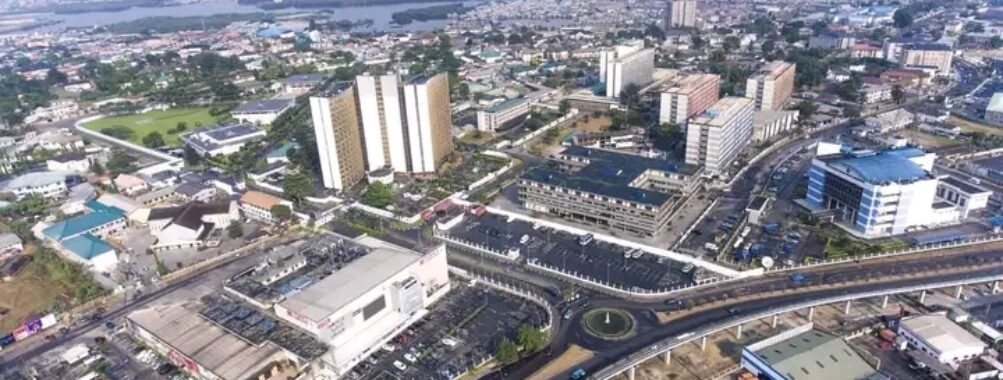
Port Harcourt
Table of Contents Port Harcourt, the capital of Rivers State in southern Nigeria, is a fascinating mix of contrasts — modern yet deeply traditional, industrial yet full of life. Locals often call it “PH City,” and if you spend even a few days here, you’ll probably find yourself doing the same. It’s a city that never quite sits still. You’ll hear the hum of generators, the chatter of street vendors selling roasted plantains, and the distant thrum of oil tankers along the Bonny River. It’s chaotic, yes, but in that beautiful, unpredictable way that makes travel worth it. Home to about 3.48 million people as of 2023, Port Harcourt is Nigeria’s oil capital — the economic heartbeat of the Niger Delta region. But beyond the oil rigs and refineries, there’s a softer side to the city that often surprises visitors. I still remember my first evening walk along Aba Road: the smell of suya sizzling on roadside grills, the laughter spilling out of bars, the way the humid air felt thick with possibility. It’s not the kind of place that tries to impress you immediately. Instead, it grows on you — slowly, steadily, until you realize you’ve fallen for its raw energy and authenticity. There’s a certain resilience in the people here — a sense of pride that shines through even in the city’s rough edges. And while Port Harcourt might not have the polished tourist infrastructure of Lagos or Abuja, it offers something more genuine: a window into real Nigerian life, unfiltered and full of character. Whether you’re here for business, exploration, or just curiosity, this city has a way of leaving its mark on you. The best time to visit Port Harcourt is during the dry season, roughly from November to March. The weather is warm but less humid, and outdoor activities are far more enjoyable without sudden downpours. The rainy season, from April through October, brings heavy showers that can flood streets — though there’s something oddly charming about watching the city glisten after a tropical rain. If you’re the kind who loves moody skies and lush greenery, you might even prefer that time of year. Personally, I think December is the sweet spot. The city feels festive, and the air carries that unmistakable holiday buzz. Locals host open-air parties known as “end-of-year grooves,” and you’ll find live music almost everywhere. Just book your accommodation early — hotels fill up quickly around that time. Getting to Port Harcourt is relatively straightforward. The Port Harcourt International Airport serves both domestic and international flights, with regular connections from Lagos, Abuja, and several West African cities. From the airport, you can grab a taxi or use a ride-hailing app — though I’ll warn you, traffic can be unpredictable, especially around rush hour. If you’re coming from nearby cities like Owerri or Aba, road travel is also an option, with several reliable bus lines operating daily routes. Within the city, transportation is a mix of taxis, minibuses, and motorbikes (called “okadas”). If you’re new to the area, I’d suggest sticking with registered taxis or ride apps for safety and convenience. And don’t be surprised if drivers strike up a conversation — people here are naturally chatty and curious about visitors. First things first: Port Harcourt is safe for travelers who use common sense, but like any big city, it’s smart to stay alert. Avoid wandering alone at night in unfamiliar areas and keep your valuables secure. That said, most people you’ll meet are warm, welcoming, and eager to help. Nigerians, in general, have a strong sense of hospitality — you might even be invited to share a meal or attend a local celebration if you’re lucky. Here are a few practical tips that’ll make your visit smoother: One thing I learned from my time in Port Harcourt is that it rewards curiosity. Step off the main roads, chat with locals, try something unfamiliar — that’s where the real magic happens. Sure, it’s not a polished tourist destination, but maybe that’s exactly why it feels so real. You won’t find postcard perfection here, but you will find stories, laughter, and a kind of raw, unfiltered beauty that sticks with you long after you’ve left. So, if you’re planning a trip through southern Nigeria, don’t skip Port Harcourt. It’s a city that challenges expectations, surprises you when you least expect it, and, if you let it, shows you a side of Nigeria that’s both gritty and unforgettable.Description
Key Features
Best Time to Visit
How to Get There
Tips for Visiting
Location
Places to Stay Near Port Harcourt
Find and Book a Tour
Explore More Travel Guides
No reviews found! Be the first to review!